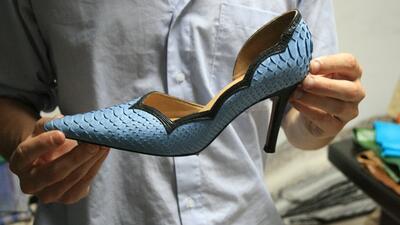
Improving sustainable sourcing in the value chain for python
Establishing sustainable sourcing in global value chains is one of the main challenges facing the trade in wildlife species, particularly for the luxury fashion sector, said the Executive Director of the International Trade Centre (ITC) Arancha González. She said the launch of a new report titled ‘Assessment of Python Breeding Farms Supplying the International High-end Leather Industry’ will help the industry and conservation community to design policies aimed at ensuring improved sustainable sourcing and traceability besides strengthening the benefits to local livelihoods.
The report was published on 31 March 2014 by the Python Conservation Partnership, which comprises Kering, the International Union for Conservation of Nature (IUCN) and ITC. The Partnership is focused on research and recommendations to improve sustainability, transparency, animal welfare and livelihoods in the python skin value chain. The study has revealed the need to introduce systems to document python farming to ensure that sourcing is sustainable. It noted the importance in differentiating between captive-bred and wild-caught skins through a tracking, monitoring and certification system that would ensure that the trade in python skins is legal. This would facilitate traceability and transparency in the python skin trade. The study on captive breeding and animal welfare is aimed at promoting greater understanding of python farming and python skin sourcing in line with best practices in wildlife conservation.
The Partnership report provides information on how pythons are farmed in Asia through visits to captive breeding farms in China, Thailand and Viet Nam. It examines the impact on local livelihoods and their contribution of captive python skins to international trade. Consultations were also held with national management authorities of the Convention on International Trade in Endangered Species of Wild Fauna and Flora (CITES), farming associations, fashion houses and tanneries, and scientific experts.
The python skin trade is worth approximately USD1 billion. Python skins are in high demand by the luxury fashion industry for the production of clothes, handbags, shoes, wallets and belts. The skins are also used to make traditional Chinese musical instruments. Pythons are commonly found in Southeast Asia, particularly in Indonesia, Malaysia, and Viet Nam.
Click here to view the report






